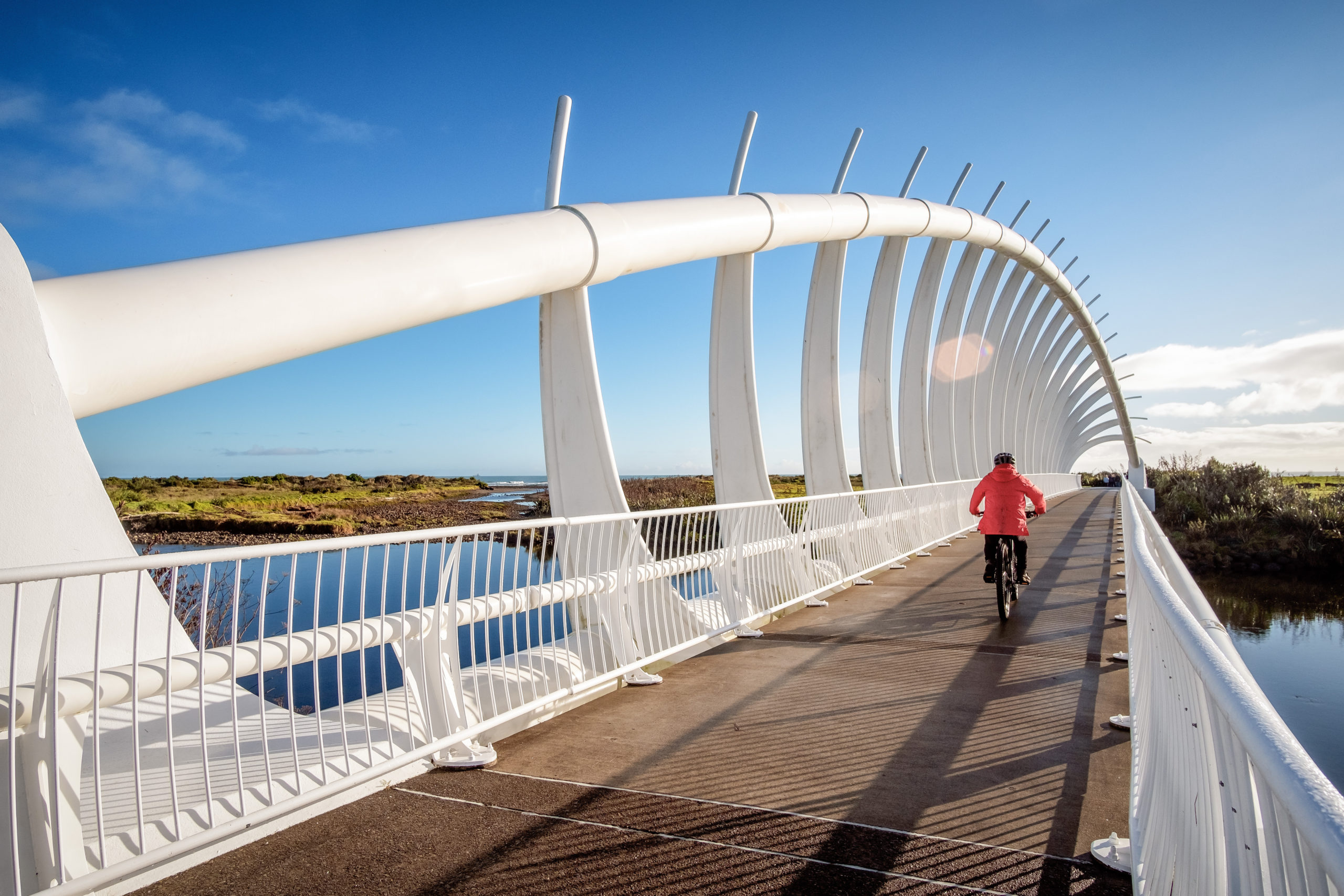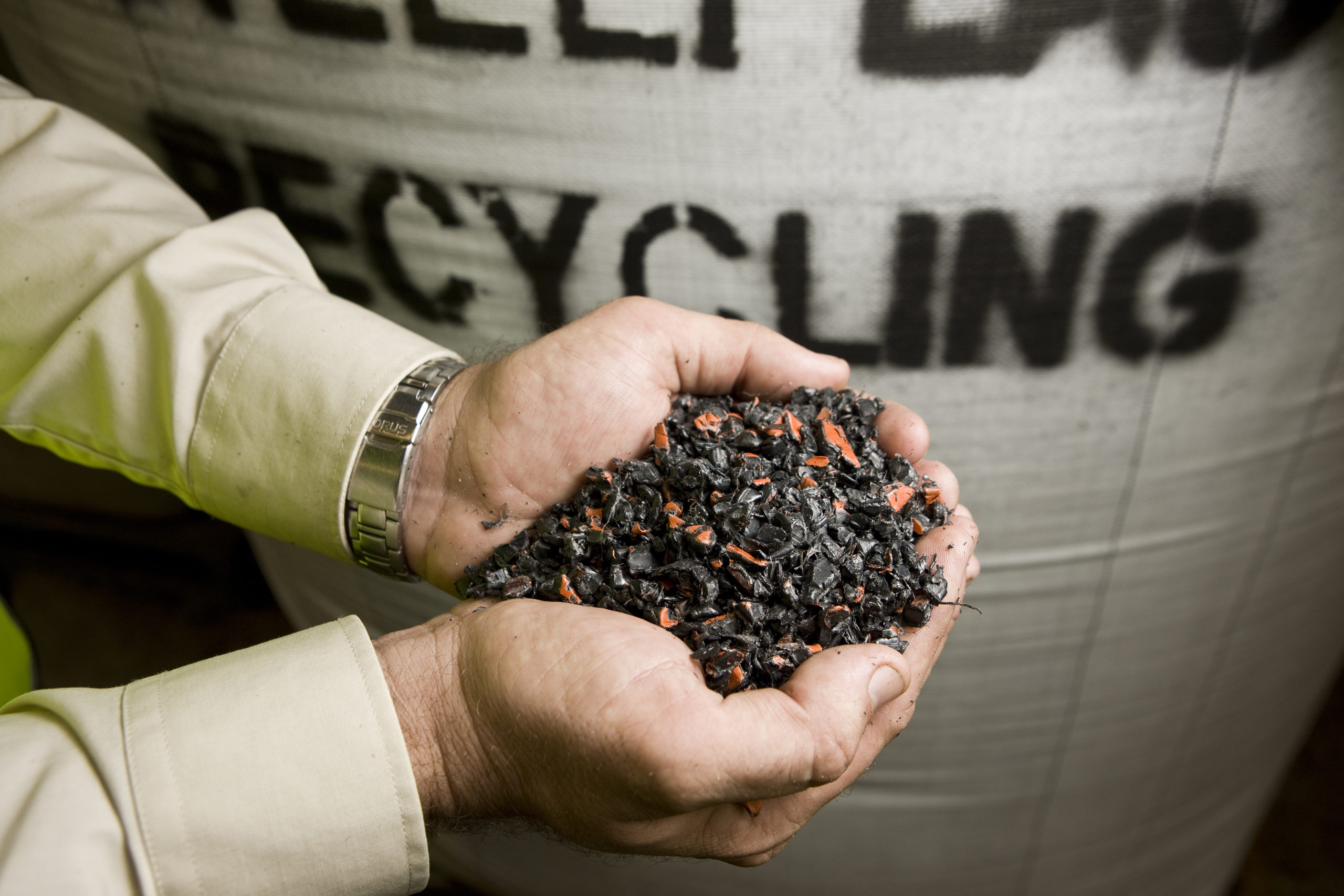A brand-new digital tool will drive a sector-wide shift in the decarbonisation of Aotearoa’s infrastructure.
The Westpac NZ Government Innovation fund has today announced an investment in the Infrastructure Sustainability Council to scale decarbonisation and sustainability outcomes in Aotearoa infrastructure. Specifically streamlined for infrastructure programmes and projects with a capital investment less than $100m, IS Essentials will be an online version of the Infrastructure Sustainability Council’s Infrastructure Sustainability (IS) Rating Scheme.
The IS Rating Scheme enables government agencies, private asset owners, and investors to measure, improve, and report on the economic, environmental, cultural, and social impact of infrastructure investments. This includes transport, water and energy infrastructure assets, ports, parks, and community facilities throughout Aotearoa.
The investment from the Westpac NZ Government Innovation Fund comes under their seventh intake focusing on Financing and Incentivising the Decarbonisation of Aotearoa.
Infrastructure and construction have been identified as significant contributors to decarbonisation efforts in Aotearoa, contributing up to 20% of New Zealand’s carbon emissions. The IS Rating Scheme is the only globally recognised sustainability standard that covers all stages of the asset lifecycle for all types of infrastructure and is aligned with the UN Sustainable Development Goals and NZ Treasury’s Living Standards Framework.
“This is a powerful symbol of progress towards sustainable infrastructure in Aotearoa New Zealand,” says the Council’s CEO Ainsley Simpson.
“The Rating Scheme creates impact by measuring what matters, identifying opportunities for the sector to drive changes that will have the biggest impact on emissions over an assets lifecycle.
“With IS Essentials, sustainability can be embedded into decision making to deliver better outcomes for our environment and communities.
Infrastructure projects rated under the Scheme are set to deliver up to NZ$2.6 return per $1 spent, through improved materials, energy emissions, environmental, social and cultural outcomes.
Currently, more than 220 infrastructure assets across New Zealand and Australia are under rating, with a total combined capital value of over $219B. In 2021, the Council certified a 56% reduction in lifecycle materials emissions and a 46% reduction in lifecycle energy emissions when compared to standard practice.
It is estimated that 80% of New Zealand’s publicly funded infrastructure projects have a capital value under $100m. The new tool is intended to make the Rating Scheme accessible to a wider range of projects across central and local government and as well as private infrastructure developments.
There is a strong demand in New Zealand for sustainability benchmarking that is accessible, scalable and cost-effective, according to ISC’s New Zealand General Manager, Adrienne Miller.
“Government, private asset owners, financial and investment sectors are all looking for sustainability assurance to better deliver and report on their own sustainability achievements, and it needs to be transparent, robust and comprehensive.
Director of the Westpac NZ Government Innovation Fund Simon Rogerson believes that being able to qualify the performance of more infrastructure projects is key to creating a more sustainable New Zealand.
“Aotearoa needs collective action to create a more sustainable future. By making the IS Rating Scheme relative to a New Zealand environment and accessible to smaller infrastructure projects, Infrastructure Sustainability Council will enable more projects to meet their sustainable infrastructure goals, which will have wide reaching benefits, says Mr Rogerson.
The IS Essentials tool is in pilot phase with 18 projects in Australia and New Zealand signed up to date. Asset owners are invited to contact Ms Miller, General Manager NZ to express interest in being included in the pilot.
“We believe the things we do today should lead to a positive future. Every infrastructure asset is an opportunity to do things better says Ms Simpson.
About Infrastructure Sustainability Council
The Infrastructure Sustainability Council (IS Council) is purpose-led not-for-profit operating in Australia and Aotearoa New Zealand. ISC works with its members to ensure that all infrastructure delivers social, cultural, environmental, and economic benefits. The Council works with more than 20 federal, state and local government departments. The Infrastructure Sustainability (IS) Rating Scheme is mandated by delivery agencies and asset operators across Australia and New Zealand with more than $200 billion infrastructure projects undertaking ratings. The Council represents 200-plus individual companies, departments and associations with a combined annual turnover of more than $50 billion. For more information, contact the IS Council on info@iscouncil.org or visit www.iscouncil.org
About the Westpac NZ Government Innovation Fund:
The Westpac NZ Government Innovation Fund is a joint initiative established in 2016. Funded by Westpac NZ and is mutually governed by Westpac NZ and the New Zealand Government, its aim is to drive innovation and change at a government level to solve real-world issues and help create solutions that are tangible, valuable, and inspiring for all New Zealanders.
We listen to those who want to make a difference – government agencies, organisations, business or everyday New Zealanders who have identified a problem worth solving – and provide funding and expertise to explore, validate, or implement smart solutions. We help connect potential partners and customers in the government and private sector, bringing people together with shared problems or experiences.
Media contacts:
Infrastructure Sustainability Council
Adrienne L. Miller, General Manager New Zealand
M 027 693 9753 | E Adrienne.Miller@iscouncil.org
Westpac NZ Government Innovation Fund
Annabel Olsen, Westpac NZ Media Relations Adviser
M: 027 809 3477 | E: annabel.olsen@westpac.co.nz


